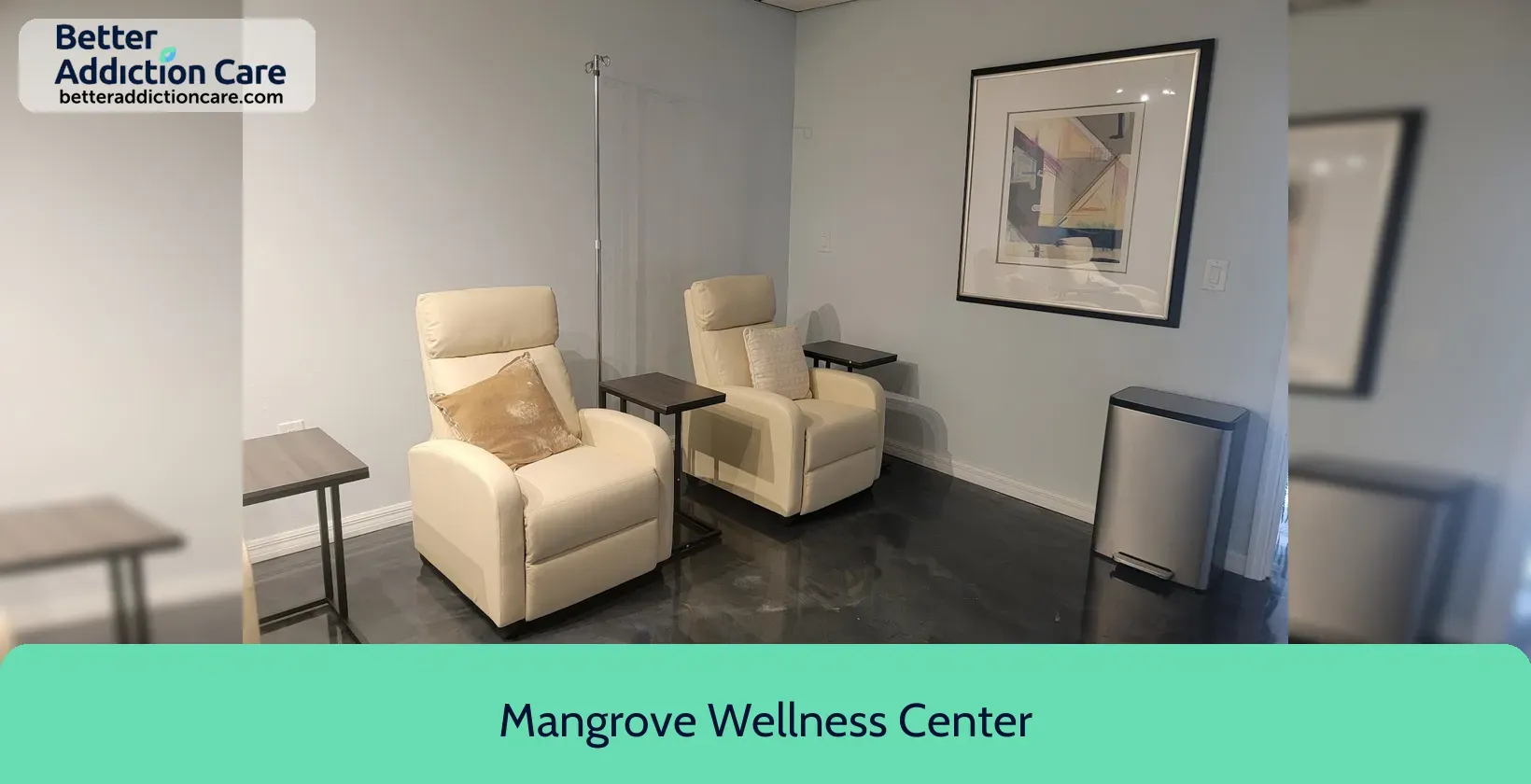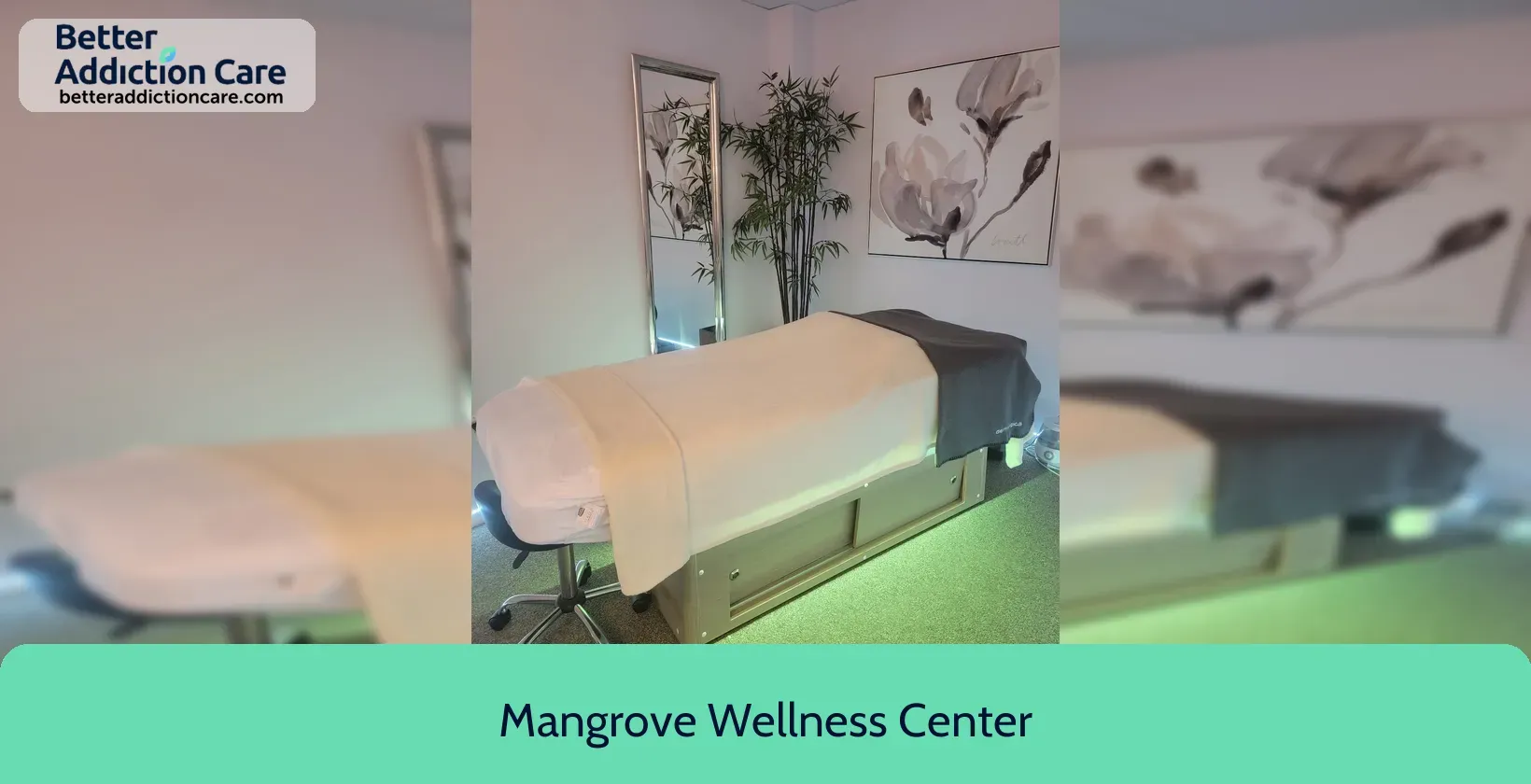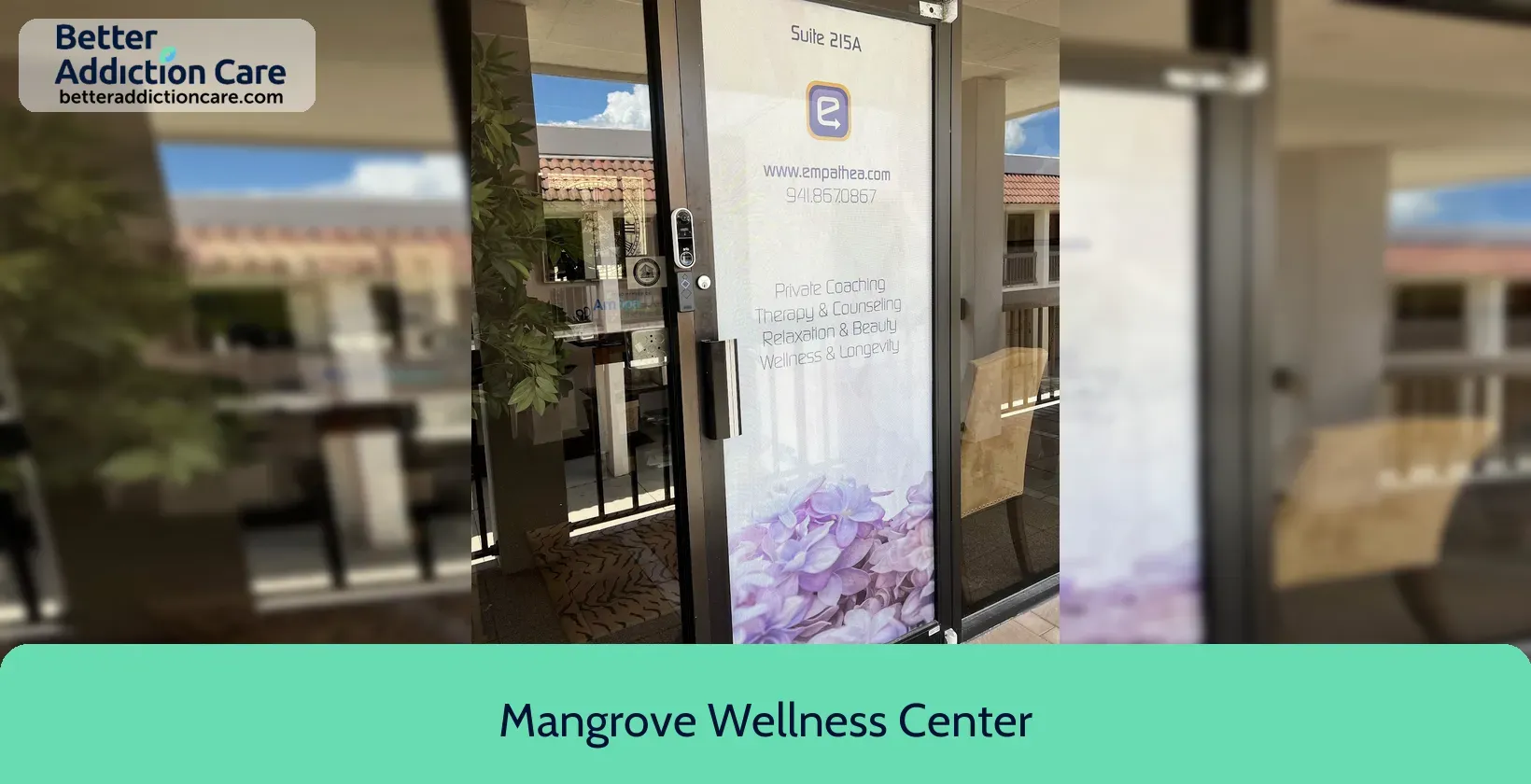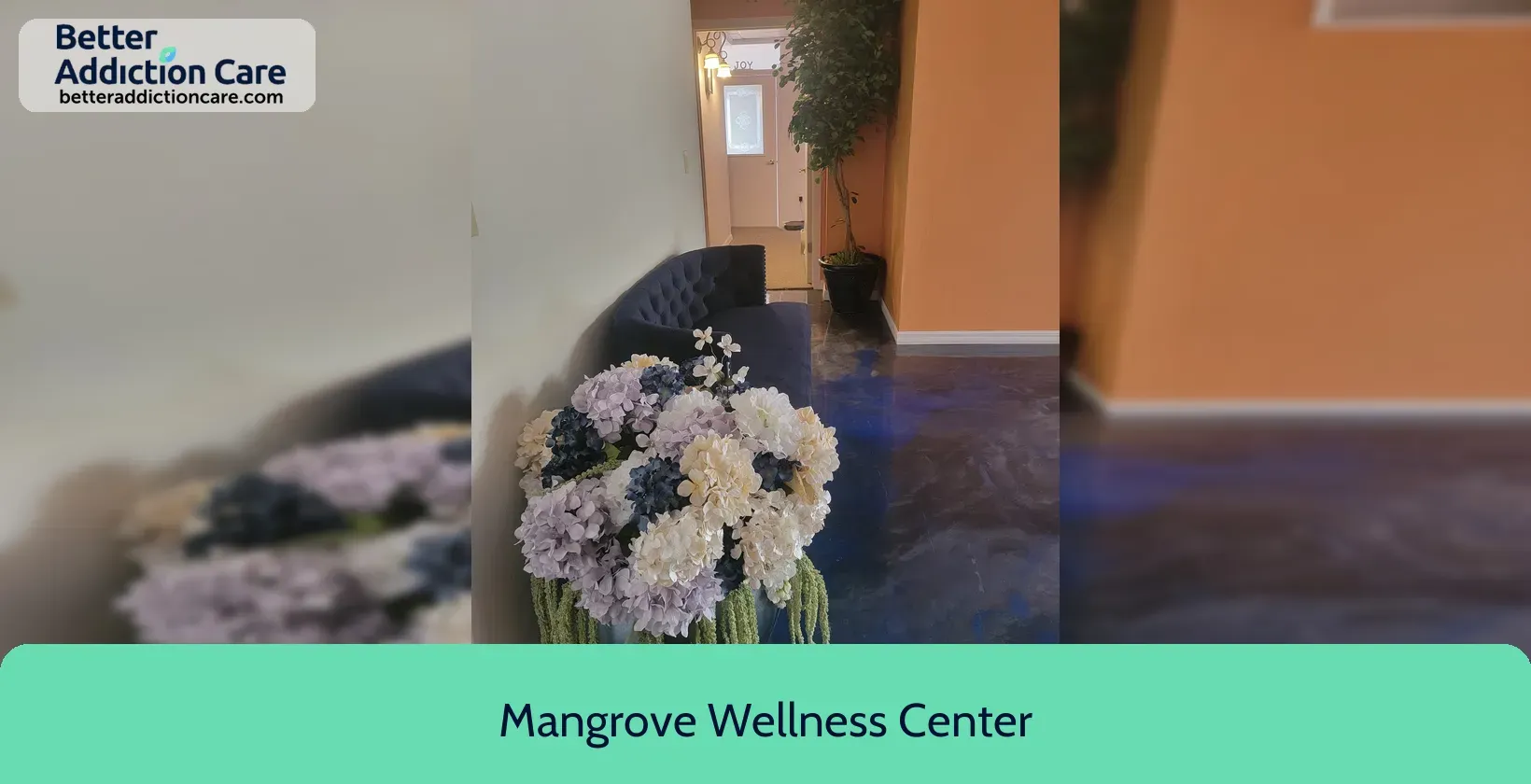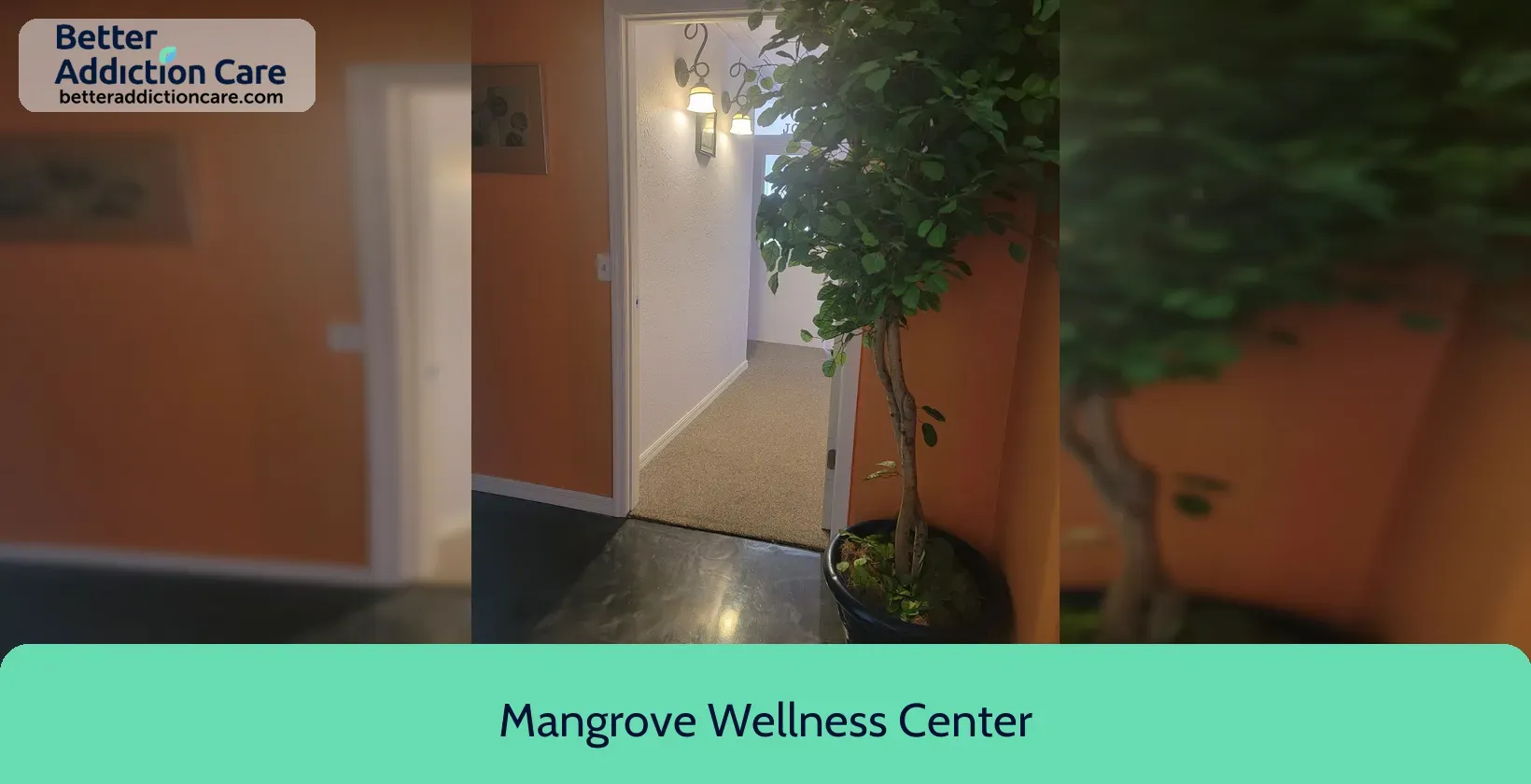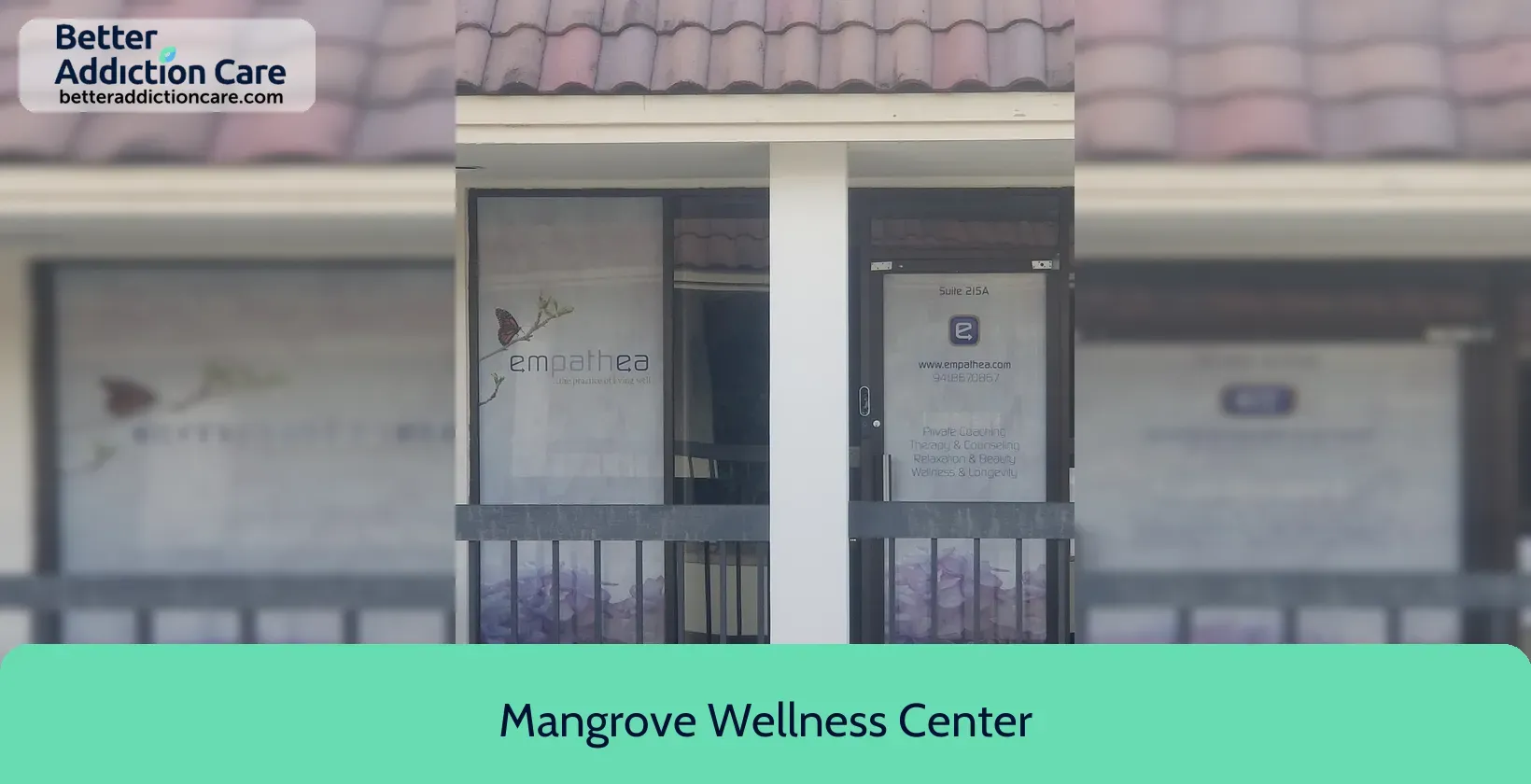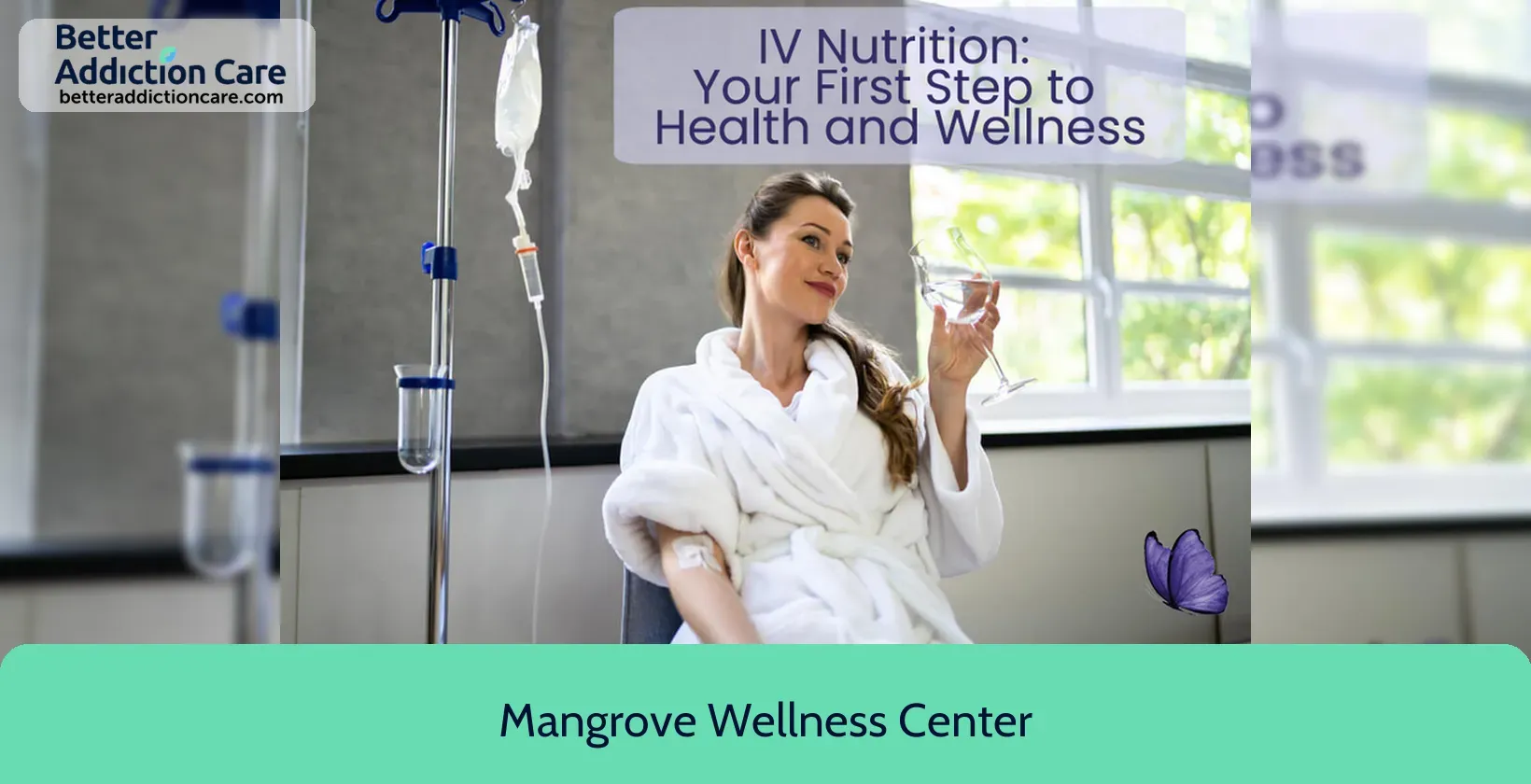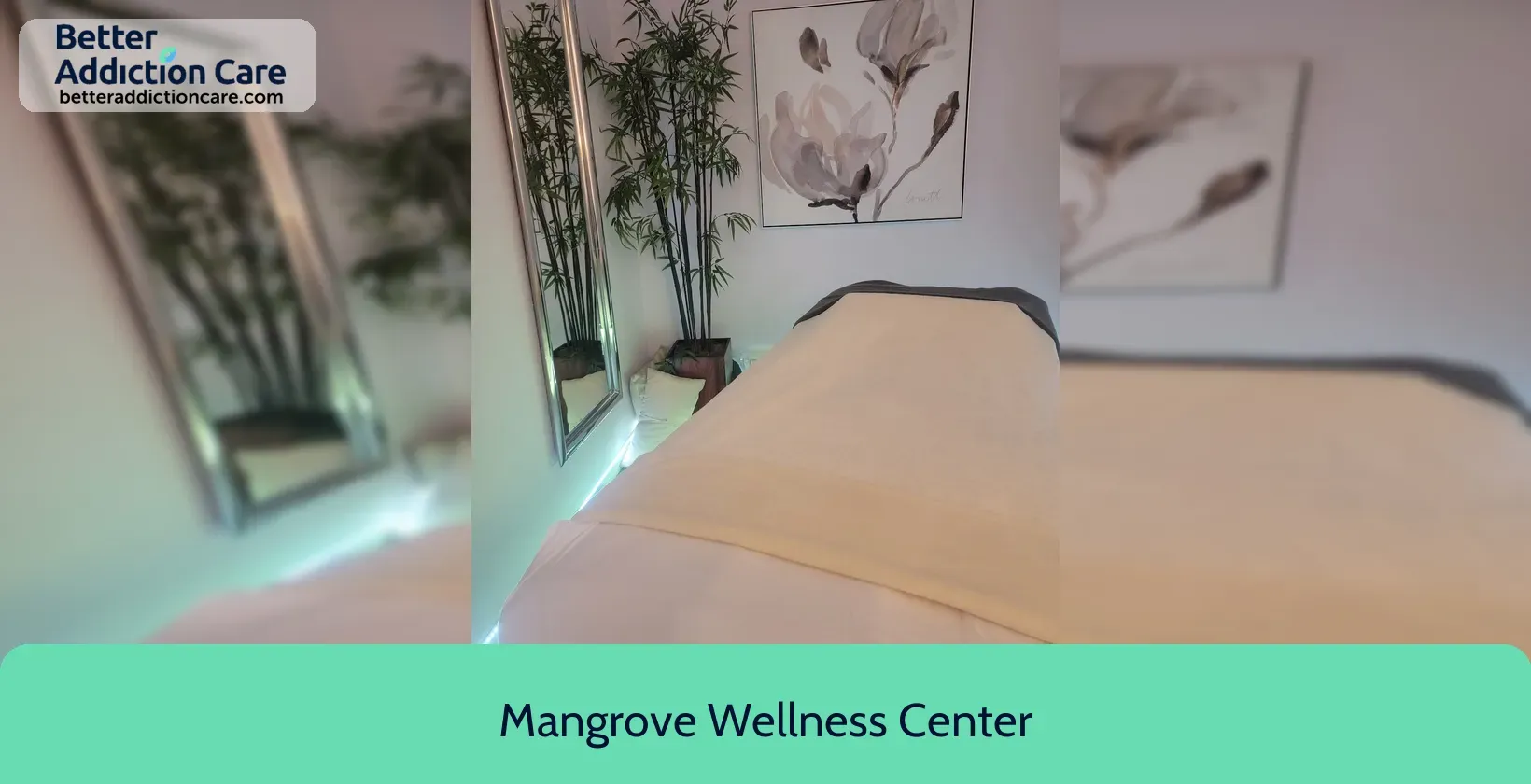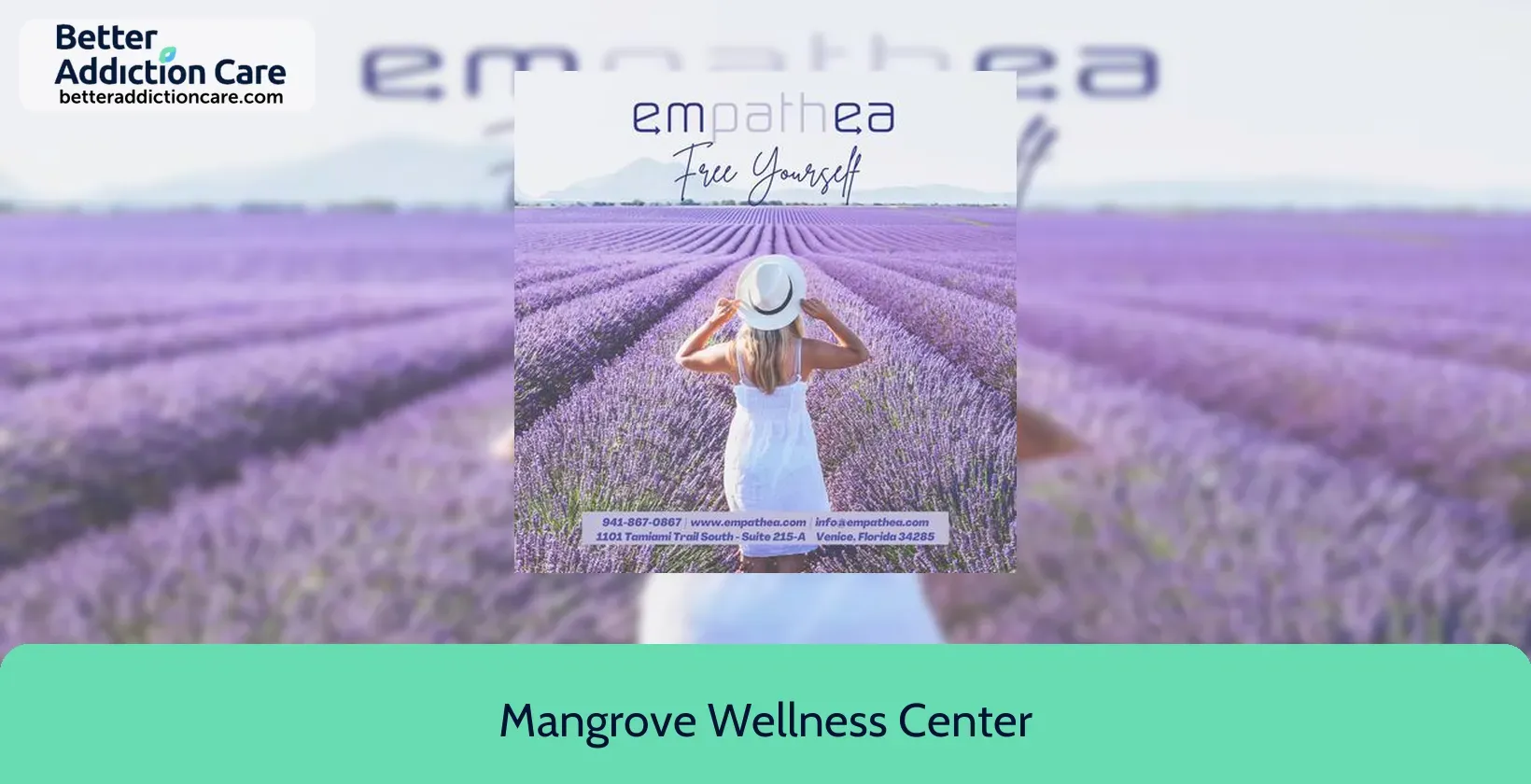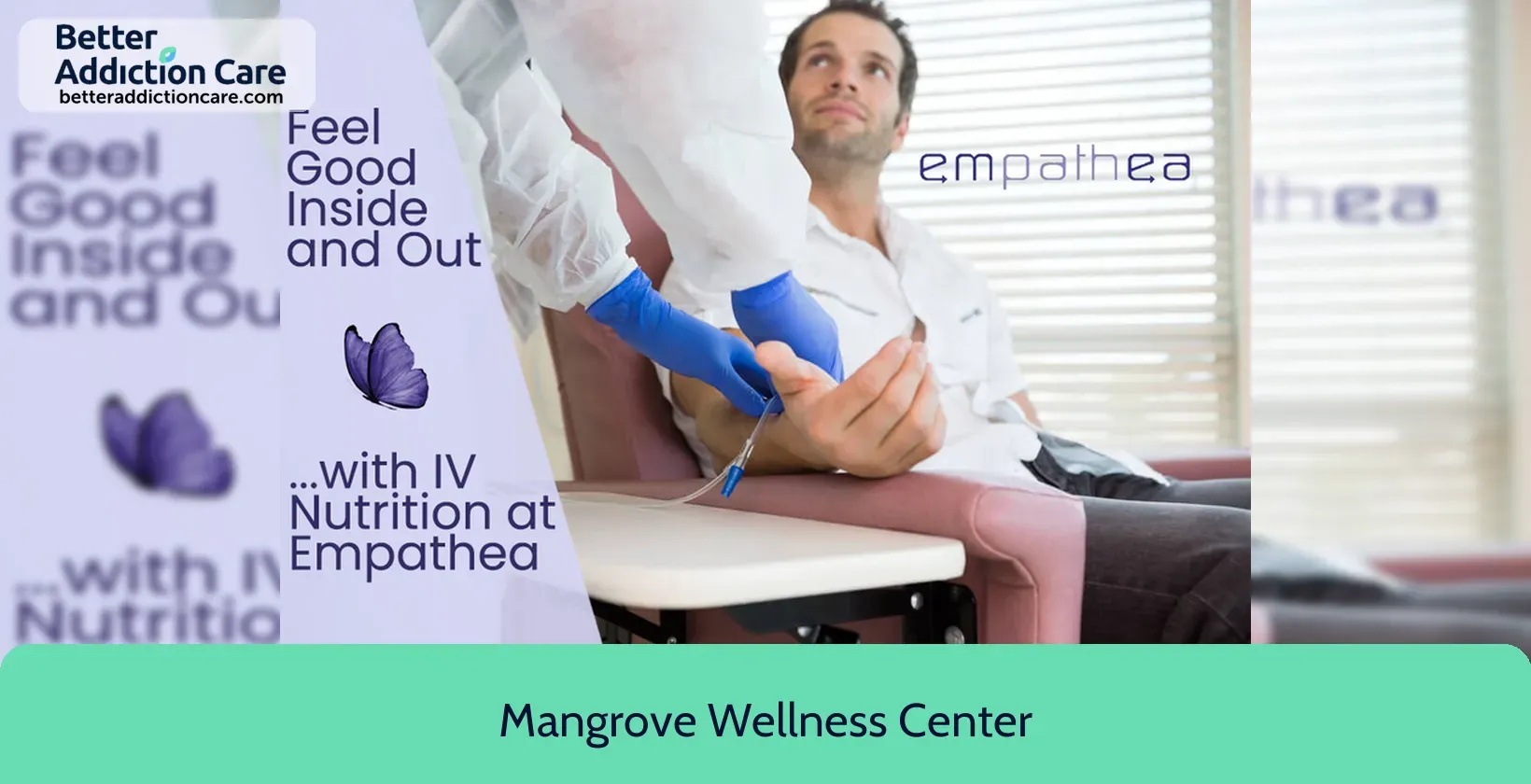Mangrove Wellness Center
Overview
Mangrove Wellness Center is an accredited substance abuse treatment center that provides outpatient detoxification, for men and women from 18+ years of age. As part of their special programs, Mangrove Wellness Center treats clients with hiv or aids, active duty military, and persons with eating disorders. To help patients achieve sobriety, Mangrove Wellness Center provides intake assessments. Afterward, patients receive individual psychotherapy, group counseling, and family counseling during treatment. Mangrove Wellness Center is located in Venice, Florida, providing treatment for people in Sarasota County, accepting cash or self-payment, sliding fee scale (fee is based on income and other factors), and medicaid.
Mangrove Wellness Center at a Glance
Payment Options
- Cash or self-payment
- Sliding fee scale (fee is based on income and other factors)
- Medicaid
- Federal military insurance (e.g., TRICARE)
- Private health insurance
Assessments
- Comprehensive mental health assessment
- Comprehensive substance use assessment
Age Groups
- Children/adolescents
- Young adults
- Adults
Operation
- Private for-profit organization
Highlights About Mangrove Wellness Center
7.03/10
With an overall rating of 7.03/10, this facility has following balanced range of services. Alcohol Rehabilitation: 8.00/10, Drug Rehab and Detox: 6.00/10, Insurance and Payments: 6.67/10, Treatment Options: 7.46/10.-
Alcohol Rehabilitation 8.00
-
Treatment Options 7.46
-
Insurance and Payments 6.67
-
Drug Rehab and Detox 6.00
Accreditations
State department of health:

Government agencies issue State Licenses, granting rehabilitation organizations permission to operate their businesses legally within specific geographic regions. The licenses needed for legal operation are typically determined by the type of rehabilitation program offered by a facility and its physical location.
Registration: MH 12785
Treatment At Mangrove Wellness Center
Treatment Conditions
- Mental health treatment
- Alcoholism
- Opioid Addiction
- Substance use treatment
- Co-occurring Disorders
Care Levels
- Detoxification
- Aftercare
- Outpatient
Treatment Modalities
- Individual psychotherapy
- Group counseling
- Family counseling
- Marital/couples counseling
- Life Skills
Ancillary Services
Special Programs
- Clients with HIV or AIDS
- Active duty military
- Persons with eating disorders
- Clients who have experienced trauma
Get Help Now
Common Questions About Mangrove Wellness Center
Contact Information
DISCLAIMER: The facility name, logo and brand are the property and registered trademarks of Mangrove Wellness Center, and are being used for identification and informational purposes only. Use of these names, logos and brands shall not imply endorsement. BetterAddictionCare.com is not affiliated with or sponsored by Mangrove Wellness Center.
